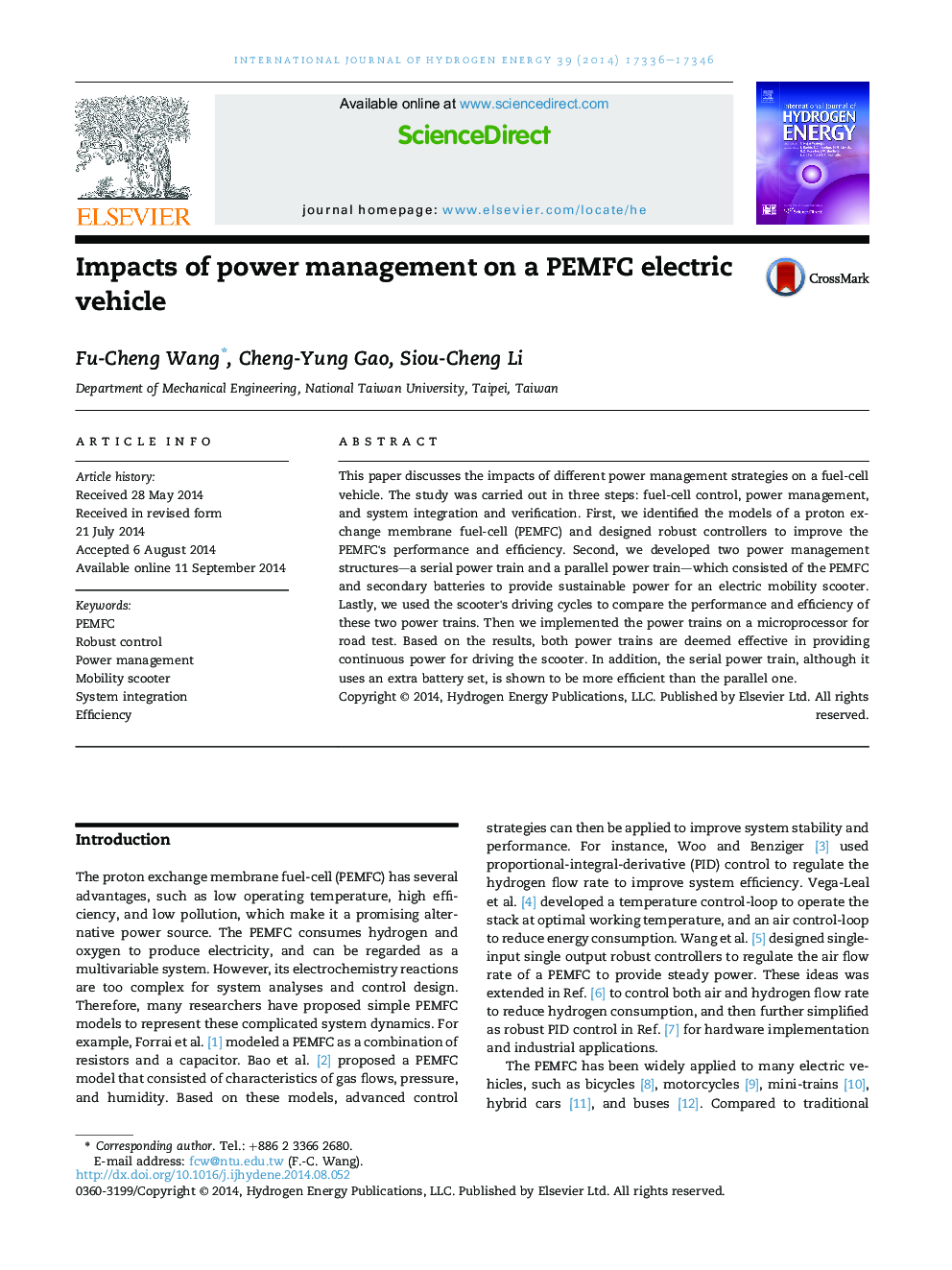| Article ID | Journal | Published Year | Pages | File Type |
|---|---|---|---|---|
| 1272190 | International Journal of Hydrogen Energy | 2014 | 11 Pages |
•A PEMFC mobility scooter was developed.•Robust controllers were designed to improve the performance of the PEMFC.•Two power management strategies were tested for the scooter.•Both power trains were implemented on a microchip for road tests.•The serial power train was shown to be more efficient and energy saving.
This paper discusses the impacts of different power management strategies on a fuel-cell vehicle. The study was carried out in three steps: fuel-cell control, power management, and system integration and verification. First, we identified the models of a proton exchange membrane fuel-cell (PEMFC) and designed robust controllers to improve the PEMFC's performance and efficiency. Second, we developed two power management structures—a serial power train and a parallel power train—which consisted of the PEMFC and secondary batteries to provide sustainable power for an electric mobility scooter. Lastly, we used the scooter's driving cycles to compare the performance and efficiency of these two power trains. Then we implemented the power trains on a microprocessor for road test. Based on the results, both power trains are deemed effective in providing continuous power for driving the scooter. In addition, the serial power train, although it uses an extra battery set, is shown to be more efficient than the parallel one.
